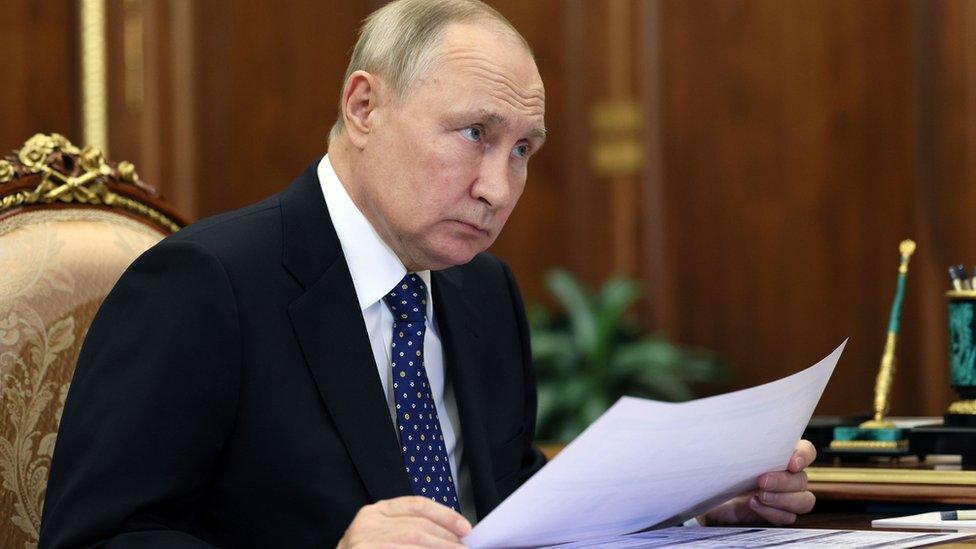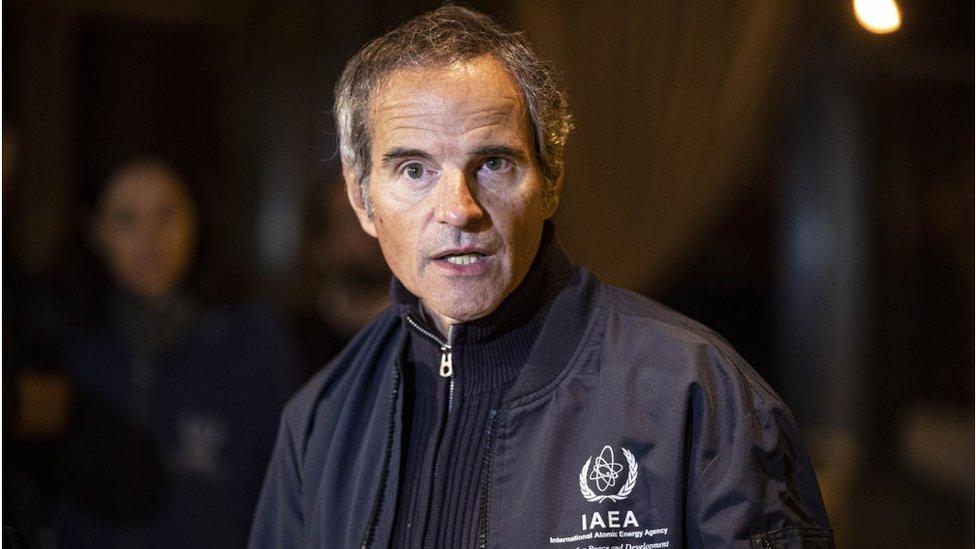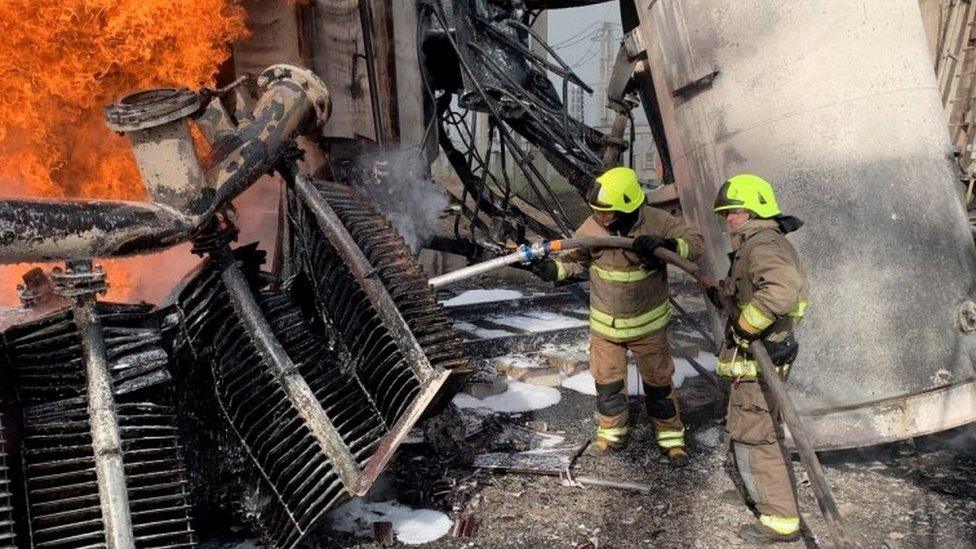Russian dirty bomb claims 'feel like scare tactics'
- Published

Claims about "dirty bombs" have come at a difficult time in the conflict for Russia
Russia is standing by its claim that Ukraine is preparing to use a so-called dirty bomb - an explosive device laced with radioactive material. It made its case at the UN Security Council on Tuesday. But such allegations have been typical of Russia's conduct during the war.
Russia has never submitted any evidence to back up its claim about Ukraine's alleged possession of a dirty bomb.
Despite discussing its concerns with numerous western officials, the Kremlin seems remarkably reluctant to air them in public.
A statement on Monday by Lt Gen Igor Kirillov, chief of Russia's Radiation, Chemical and Biological Defence Troops, said only that work by organisations in Ukraine were "in the final stages".
Ukraine, he said, was preparing to detonate a device in order to accuse Moscow of using weapons of mass destruction.
But Defence Minister Sergei Shoigu's unusual calls to his American, British, French and Turkish counterparts on Sunday do not seem to have impressed anyone.
The American, French and British foreign ministers, in a joint statement, called Russia's allegation "transparently false."
It's all very reminiscent of the days before Russia's 24 February invasion, when the Kremlin repeatedly accused the United States of developing biological weapons in Ukraine. Again, no evidence was ever offered.
More on the Ukraine conflict:
Dirty bombs, which mix radioactive material with conventional explosives, are relatively cheap and easy to make. Given that more or less any kind of radioactive material can be used - including from hospitals and research labs - governments have long feared that terrorists might try and use such a crude weapon.
The dirty bomb allegation is just one of several made by Moscow in recent days. It's also accused Ukraine of preparing to blow up the Nova Kakhovka dam on the Dnipro River, something that could have equally catastrophic consequences.
Ukraine, for its part, says only Moscow has so far contemplated taking such drastic action.
Last week, President Zelensky accused Russia of mining the dam.
Watch: Russian spy chief blames West for nuclear tension
Apart from holding back water roughly equivalent to Utah's Great Salt Lake, road and rail lines across the dam offer Russia some of its last links with its besieged invasion forces around Kherson.
And on Tuesday, Ukraine's state-owned nuclear energy company, Energoatom, said Russian forces occupying the Zaporizhzhia nuclear power plant were carrying out "unauthorised construction works" at the plant's dry spent nuclear fuel storage facility.
In recent days, Russian media has broadcast maps showing the dire consequences of radiation and flooding in southern Ukraine.
At a time when the war is going badly for Moscow, it all feels like scare tactics designed to intimidate Ukraine's political and military leadership, along with Kyiv's western backers.
Would Russia actually carry out such unthinkable acts? There are practical reasons why both are hugely risky for Moscow - radiation blows with the wind and any damage to the dam could cut off water supplies to Russian-occupied Crimea - but in truth, no-one really knows.
But Moscow has other ways of maintaining pressure on Ukraine: hitting its power grid and possibly causing a breakdown in the Black Sea grain deal, thus depriving Kyiv of badly needed income.
Related topics
- Published25 October 2022

- Published24 October 2022
